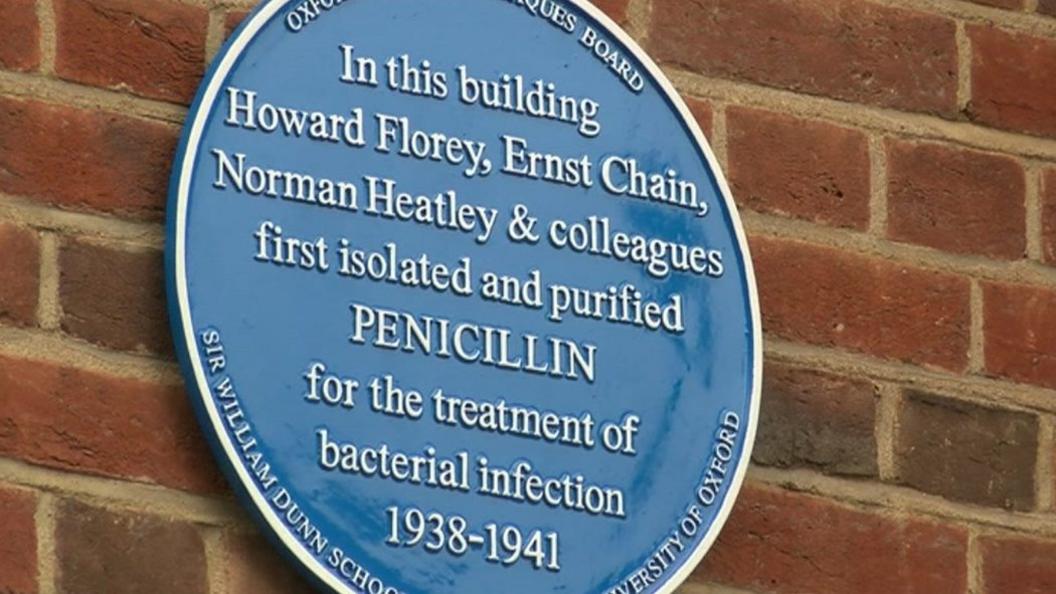Plaque in Newbury commemorates first penicillin patient
- Published
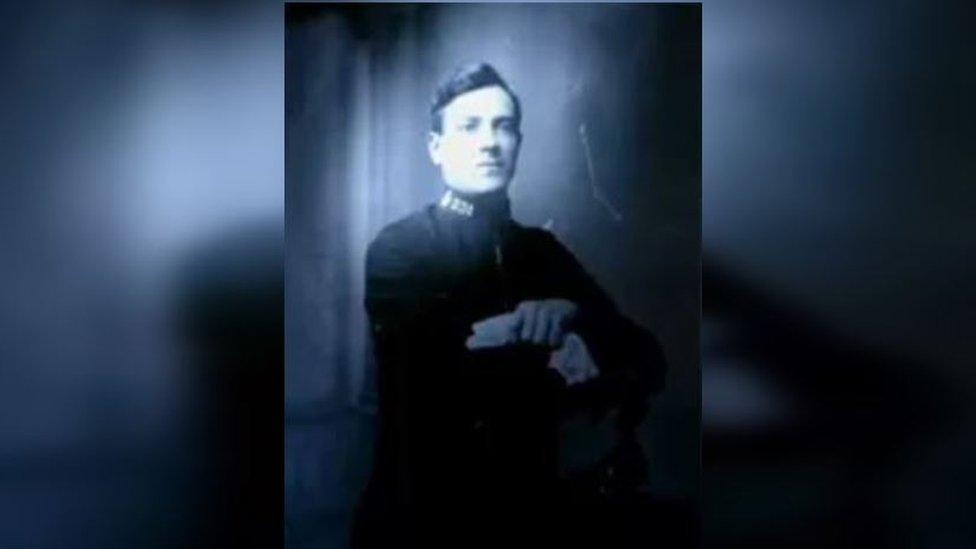
PC Albert Alexander was the first person to be treated with penicillin in 1941
A police officer who was the first person in the world to be treated with penicillin has been honoured with a plaque.
Albert Alexander, who was born in Woodley, Berkshire, was treated with the antibiotic in Oxford in 1941.
It came after he was injured in the Blitz in Southampton during World War Two.
The plaque was unveiled in Newbury, where he worked for Berkshire Constabulary.
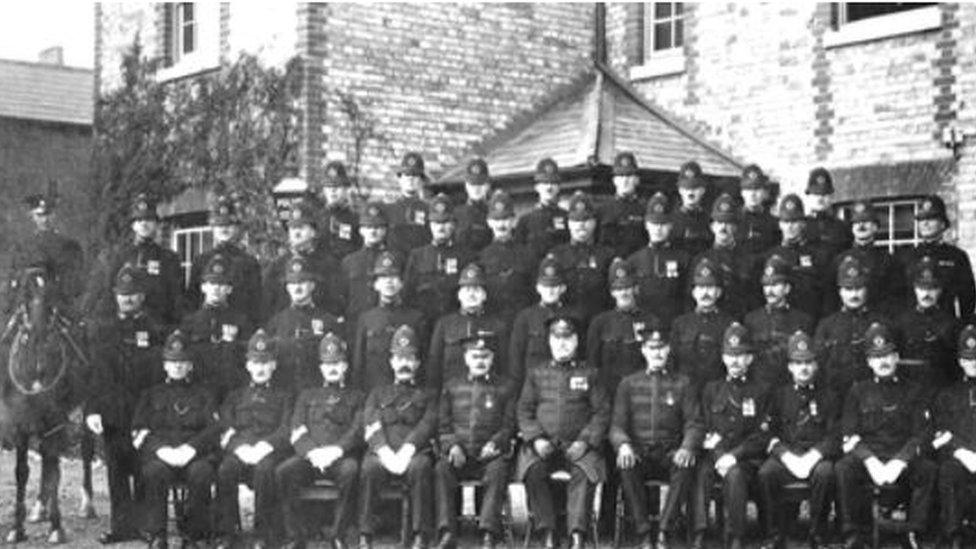
PC Albert Alexander stands next to the mounted police officer, second row from the top, outside the former Newbury Police Station in Pelican Lane
PC Alexander was on duty when he was injured in an air raid in Southampton and developed blood poisoning.
He was transferred to Oxford's Radcliffe Infirmary, where he was treated with the newly-discovered antibiotic, and showed immediate improvement.
However, penicillin could not be isolated in time to complete the cure and he died on 15 March 1941, said Newbury Town Council, which has erected the plaque.
Sir Alexander Fleming discovered penicillin in 1928 at St Mary's Hospital in London, but scientists in Oxford developed it into a viable drug.
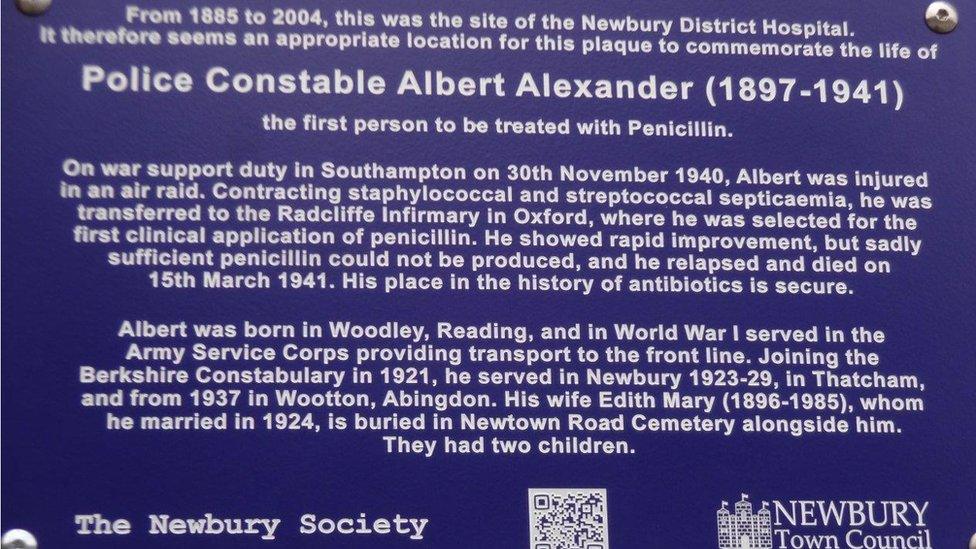
The plaque was unveiled at the site of the former Newbury District Hospital
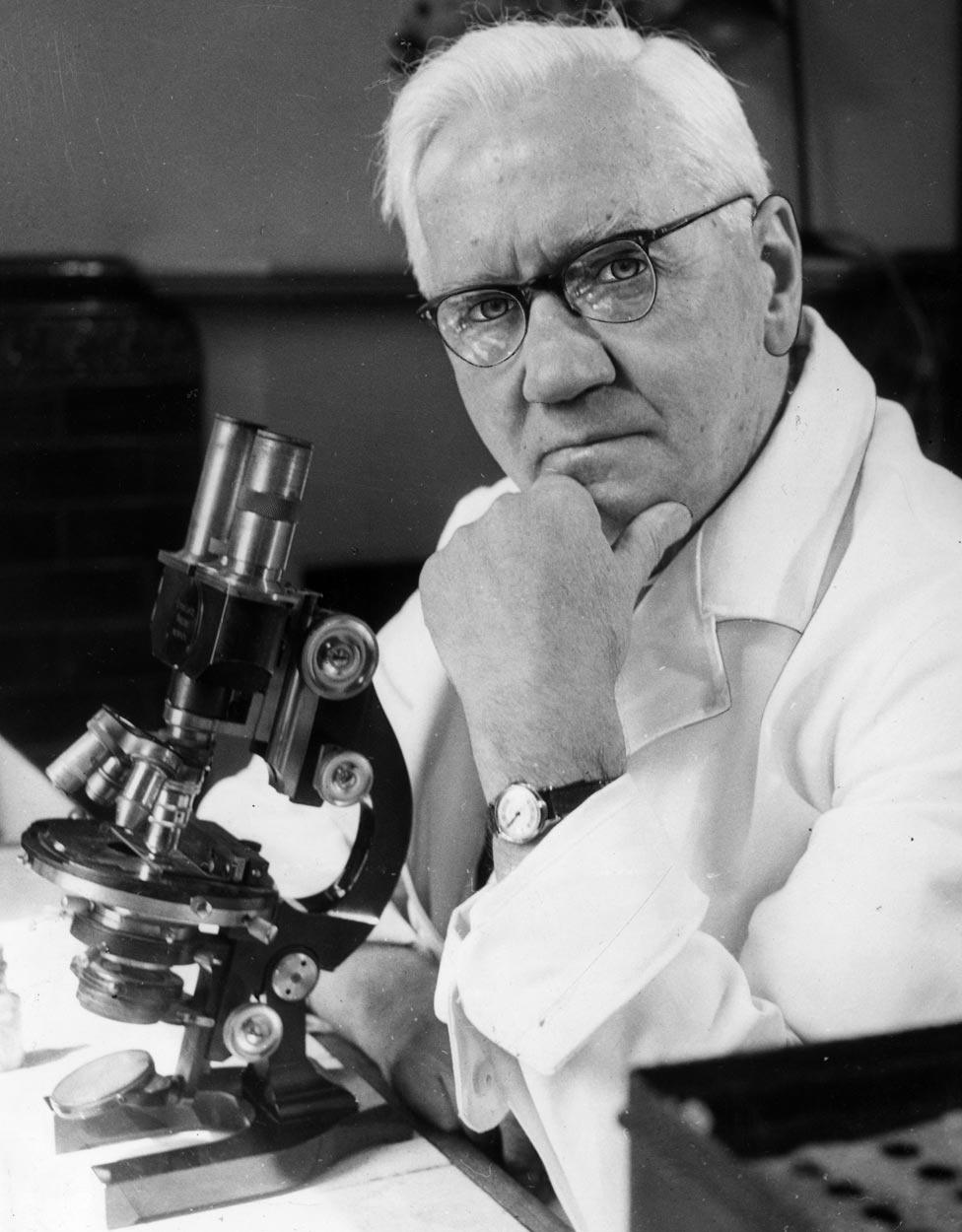
Sir Alexander Fleming discovered penicillin in 1928
The plaque was unveiled at the entrance of the retirement complex Carnarvon Place in Andover Road, which is the site of the former Newbury District Hospital.
It has been erected at the unrelated site because of its medical connection and not because PC Alexander was treated there, the council said.
His granddaughter Sheila LeBlanc, who lives in California, said: "My mother is beyond thrilled to hear about this. Thank you all for everything you're doing to honour my grandfather."
Councillor Nigel Foot, vice chair of Newbury's Heritage Working Group, said: "The town council is very grateful to the Friends of Newtown Road Cemetery who brought Albert's history to the attention of our Heritage Working Group and have provided all the background information to complete it."
He also thanked Sovereign Housing for agreeing to put up the plaque, and Newbury Society for donating £100 towards the cost.
English Heritage blue plaques have already been put up in Oxford to mark significant locations in the development of penicillin.

Follow BBC South on Facebook, external, Twitter, external, or Instagram, external. Send your story ideas to south.newsonline@bbc.co.uk, external.
Related topics
- Published29 May 2018
